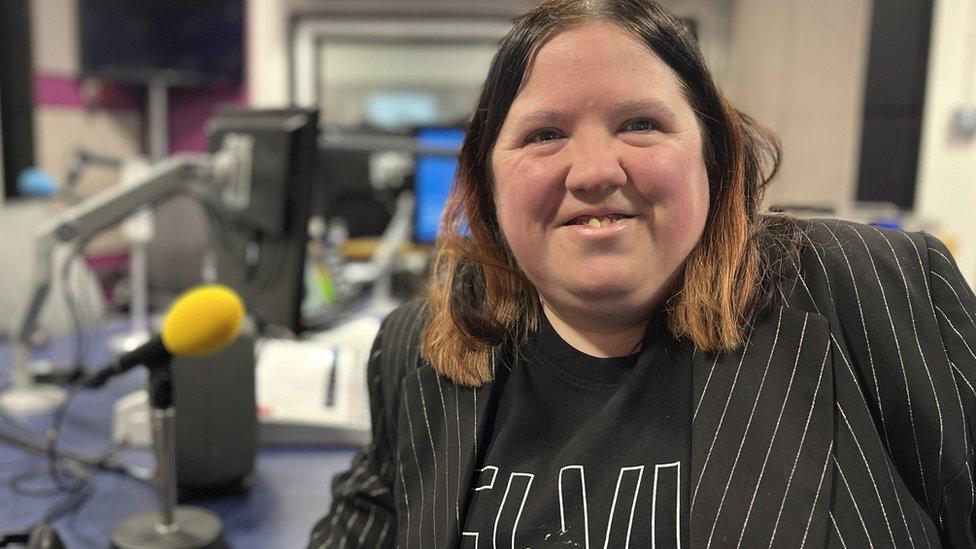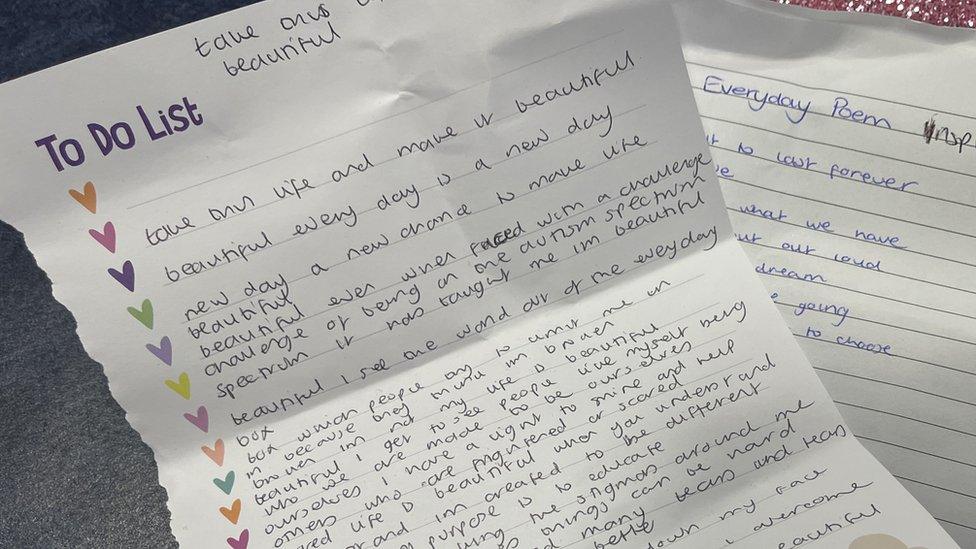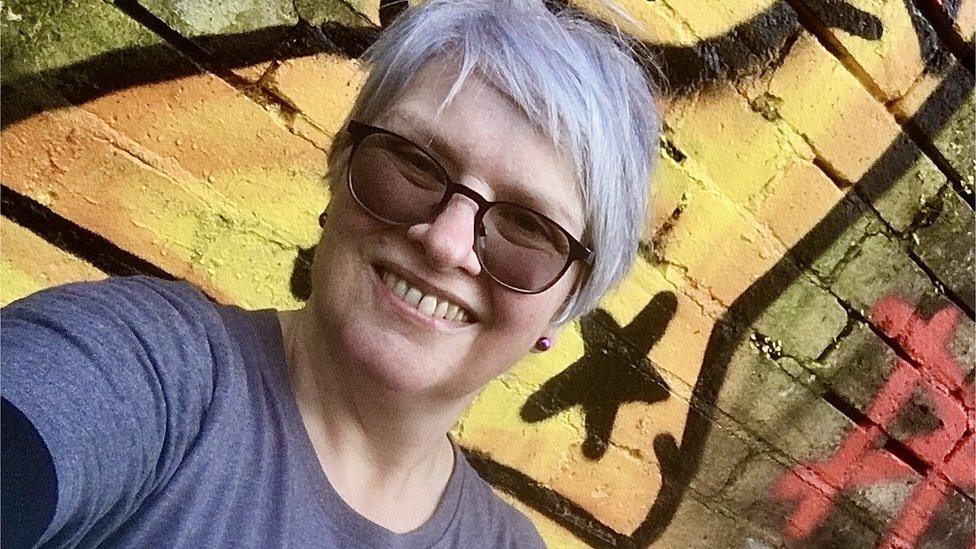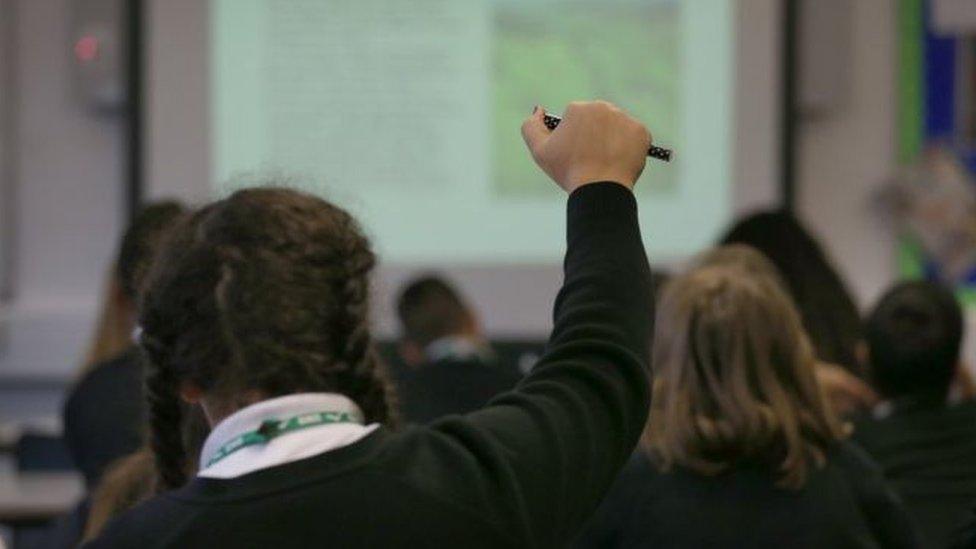Ipswich autism campaigner calls for faster diagnosis
- Published

Gemma Grace has been building followers on her YouTube channel @GemmasJourneyGrace
An autism campaigner says more needs to be done to speed up diagnosis.
NHS data, external shows there are 172,000 people in England with an open referral for suspected autism, and 85% of them have been waiting for at least 13 weeks.
Gemma Grace, 35, was diagnosed with autism 10 years ago. "How did we get to this point? There needs to be way more support," she said.
A spokesperson said the NHS was "fully committed to supporting and improving the lives of autistic people".
'Extremely worrying'
Mel Merritt, head of policy and campaigns at the National Autistic Society, external, said: "The government promised to make significant progress in reducing diagnosis waiting times in its autism strategy, but these figures make clear how, in fact, the complete opposite is happening.
"Autistic people shouldn't miss out on vital support, or even develop mental health problems and end up in crisis, because they haven't received the timely assessment that they're entitled to.
"Without urgent long-term funding for diagnosis services, waiting lists will continue to rise."
Figures from December 2019 show there were 32,233 people in England with an open suspected autism referral. That number increased to 172,022 in December 2023, the latest month data is available, an increase of 534%.
An NHS spokesperson said: "With significant demand for autism diagnosis and record demand for children's mental health services, the NHS remains fully committed to supporting and improving the lives of autistic people.
"Which is why we have published new national guidance for autism assessment services to ensure local areas can manage the significant increase in referrals they have seen over the last year, while ensuring people have the support they need as they wait to be assessed."

Gemma wrote 'Take this life and make it beautiful' for World Autism Awareness week
Ms Grace, from Ipswich, uses her YouTube channel, external to raise awareness and challenge stereotypes around neurodiversity and has recently been a guest on a podcast in the US, external as part of a panel for World Autism Acceptance Week, which runs 2-8 April.
She also regularly writes and shares poetry, reflecting her lived experience.
She said: "The conversation has got a lot better, especially on social media. There's a lot more [people on] forums talking about their diagnosis and support [but] there's still a struggle.
"I think society still has a long way to go with regards to understanding autism, but I understand it is a two-way communication.
"There needs to be more autistic people involving the neurotypical community, we need to have more of a conversation rather than being against each other.
"We want to be friends, it shouldn't be divided."

Follow East of England news on Facebook, external, Instagram, external and X, external. Got a story? Email eastofenglandnews@bbc.co.uk, external or WhatsApp 0800 169 1830
- Published22 March 2024
- Published15 December 2023

- Published28 February 2019
